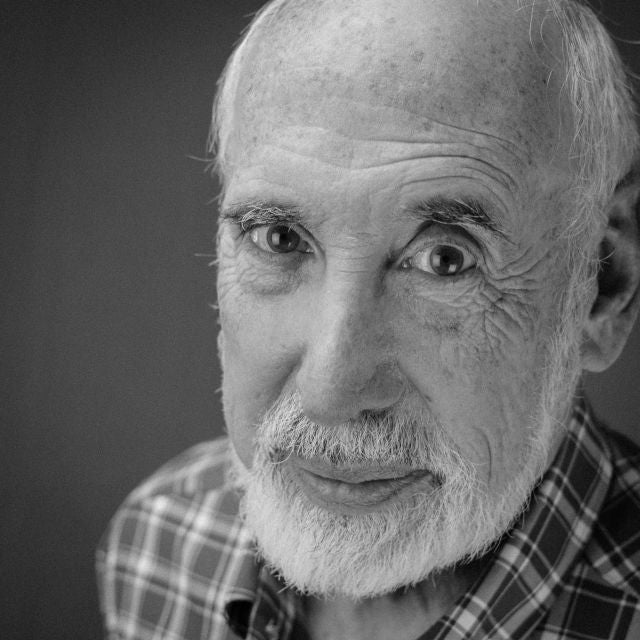Clare Henn-Haase

Clare Henn-Haase, Psy.D., is Associate Professor and Program Director of the Clinical Psychology PhD Program at the California School of Professional Psychology (CSPP) of Alliant International University. Dr. Henn-Haase received her M.Ed in Community Counseling from Loyola University of Chicago and her PsyD from the Illinois School of Professional Psychology (Argosy University), Chicago. Prior to accepting a position at CSPP, she served as Senior Lecturer, Clinical Training Coordinator and Deputy Director of Clinical Programs at the National University of Singapore (NUS). Before relocating to Singapore, Dr. Henn-Haase served as Assistant Professor and clinical director in the PTSD Research Program at the University of California, San Francisco (UCSF) and San Francisco Veterans’ Affairs (SFVA) followed by New York University Langone Medical Center (NYULMC) where she also served as clinical director of the PTSD research program and Military Family Clinic, and maintains an adjunct assistant professor affiliation. She has worked with children, adults and families in private practice for over 20 years.
Dr. Henn-Haase has extensive experience in research and clinical practice, supervision, consultation, program development, teaching and administration. She has experience working with a diverse population and has worked over seas internationally with Singaporean, Malay, Indonesian, Thai, and Chinese populations within a diverse Singaporean community. Dr. Henn-Haase has served as principal investigator or co-investigator on several research studies funded by the Department of Defense (DOD), VA, NIH, and philanthropy. Research focused on examination of a multi-site randomized-controlled treatment (RCT) trial at Bellevue Hospital investigating the effectiveness of Skills Training in Affective and Interpersonal Regulation (STAIR) treatment with women suffering from PTSD due to interpersonal violence in the community sector; longitudinal study of risk and resilience factors in police officers; assessment of PTSD in veterans through the National Vietnam Veterans Longitudinal Study (NVVRS); neuro-psychological testing comparing cognitive functioning in veterans with and without PTSD, and assessment measures of PTSD including the Clinician Administered PTSD Scale (CAPS) according to DSM-IV and DSM-5, and a pilot RCT using STAIR for adolescents with trauma exposure in Singapore residential care.
Dr. Henn-Haase has received training, and experience in cognitive-behavioral treatment for trauma including Trauma Focused treatment for PTSD, Skills Training in Affective and Interpersonal Regulation (STAIR); Trauma Systems Therapy (TST), Acceptance and Commitment Therapy (ACT), Prolonged Exposure (PE), Cognitive Processing Therapy (CPT), and Dialectical-Behavioral Therapy (DBT). She is interested in the adaptation of empirically supported evidence-based treatments for PTSD in diverse populations including Southeast Asian cultures and the dissemination of treatment through tele-health modalities to reach more rural populations. She has co-authored research publications in peer reviewed journals and presented findings at national and international conferences. She is a member of several professional associations and peer reviewer for a number of scientific journals.
Dr. Henn-Haase’s clinical and research interests and expertise is in psychological trauma acute stress, PTSD, and co-morbid syndromes, e.g., depression, anxiety, substance use, traumatic grief occurring across the lifespan. Interests also include integrated health, telehealth, simulated clinical training, epidemiological studies on risk and resilience to psychopathology, assessment, and evidence-based treatments for stress and trauma-related syndromes with a variety of populations including child, adult, military personnel, veterans, emergency services, police, women, and underserved populations.
- Postdoctoral Training – PTSD Research Program, Veterans Affairs San Francisco
- Psy.D. Clinical Psychology, IL School of Professional Psychology (ISPP), Argosy University
- Predoctoral Internship, Child Clinical Psychology
- SUNY, Health Science Center, NY (APA Accredited)
- M.Ed. Community Counseling, Loyola University, Chicago, IL
- B.A. Psychology, Cardinal Stritch University, Milwaukee, WI
- Theory & Techniques: Cognitive Behavioral Therapy
- Principles of Psychotherapy
- Family Violence and Psychological Trauma
- Advanced Psychopathology
- Cognitive Processing Therapy
- Evidence-Based Treatments for Trauma
- Advanced Clinical: ACT and DBT
- Cloitre, M., Falvey, E., Henn-Haase, C., Kahn, C., MacKintosh, M., Gavert, D. "Emotion regulation mediates the relationship between ACES and physical and mental health." Psychological Trauma: Theory, Research, Practice, and Policy, 11(1), 82-89.
- Mellon, S.H., Bersani, F.S., Lindqvist, D., Hammamieh, R., Donohue, D., Kelsey, D., Jett, M., Yehuda, R., Flory, J., Reus, V., Bierer, L.M., Makotkine, I., Abu Amara, D., Henn-Haase, C., Coy, M., Doyle, F.J., Marmar, C., & Wolkowitz, "O.M. Metabolic analysis of combat veterans with posttraumatic stress disorder." PLOS One doi 10.1371, Pone 0213839.
- Karstoft, K.I., Williams, C., Ho, C.L., Shalev, A.Y., Kulka, R., Marmar, C. R. "Predictors of PTSD 40 years after combat: Findings from the National Vietnam Veterans longitudinal study." Depression and Anxiety, doi 10.1002/da.22628.
- Bersani, F.S., Lindqvist, D., Mellon, S.H., Epel., E.S., Yehuda, R., Flory, J., Henn-Haase, C., Bierer, L.M., Makotkine, I., Abu-Amara, D., Coy, M., Reus, V.I., Lin, J., Blackburn, E.H., Marmar, C., Walkowitz, O.M. "Association of dimensional psychological health measures with telomere length in male war veterans." Journal of Affective Disorders, 190, 537-542.
- Keng SL, Waddington E, Lin XB, Tan MSQ, Henn-Haase C, Kanter JW. "Effects of functional analytic psychotherapy therapist training on therapist factors among therapist trainees in Singapore: A randomized controlled trial." Clinical Psychology and Psychotherapy, doi: 10.1002/cpp.2064.
- Aschbacher, K., Mellon, S., Sinclair, E., Marmar, C.R., Henn-Haase, C., Abu-Amara, D., Yehuda, R., Flory, J., Bierer, L., Wolkowitz, O.M., Mueller, S. "Circulating hematopoietic progenitor cell number is associated with prefrontal cortical thickness, white matter integrity and PTSD duration in combat-exposed veterans." Brain, Behavior, and Immunity, 49, E33-E34.
- Flory, J.D., Henn-Haase, C., Bierer, L.M., Lehrner, A., Makotkine, I., Marmar, C.R., & Yehuda, R. "Glucocorticoid functioning in combat veterans with post traumatic stress disorder and mild traumatic brain injury." Journal of Psychiatric Research.
- Marmar, C.R., Schlenger, W., Henn-Haase, C., Meng, Q., Purchia, E., Meng, L., Corry, N., Williams, C.S., Ho, C.L., Horesh, D., Karstoft, K.I., Shalev, A., & Kulka, R.A. "Course of posttraumatic stress disorder 40 years after the Vietnam war: Findings from the national Vietnam veterans longitudinal study." JAMA Psychiatr, E1-E7.
- Schlenger, W., Corry, N.H., Kulka, R.A., Williams, C.S., Henn-Haase, C., & Marmar, C.R. "Design and methods of the national Vietnam veterans longitudinal study." International Journal of Methods in Psychiatric Research. (e-pub, DOI: 10.1002/mpr.1469).
- Cloitre, M., Henn-Haase, C., Herman, J.J., Jackson, C., Kaslow, N., Klein, C., Mendelsohn, M., Petkova, E. "A multi-site single-blind clinical study to compare the effects of STAIR narrative therapy to treatment as usual among women with PTSD in public sector mental health settings: Study protocol for a randomized controlled trial." Trials, 15(1): 197.
- Galatzer-Levy, I.R., Steenkamp, M.M., Brown, A.D., Qian, M., Inslicht, S., Henn-Haasse, C., Otte, C., Yehuda, R., Neylan, T.C., Marmar, C.R. "Cortisol response to an experimental stress paradigm prospectively predicts long-term distress and resilience trajectories in response to active police service." Journal of Psychiatric Research, (May)56: 26-35.
- Komarovskaya, I., Brown, A.D., Galatzer-Levy, I.R., Madan, A., Henn-Haase, C., Teater, J., Clarke, B.H., Marmar, C.R., Chemtob, C.M. "Early physical victimization is a risk factor for posttraumatic stress disorder symptoms among Mississippi police and firefighter first respoondes to Hurricane Katrina." Psychological Trauma: Theory, Research, Practice & Policy, 6(1):92-98.
- Lindqvist, D., Wolkowitz, O.M., Mellon, S., Yehuda, R., Flory, J.D., Henn-Haase, C., Bierer, L.M., Abu-Amara, D., Coy, M., Neylan, T.C., Makotkine, I., Reus, V.I., Yan, X., Taylor, N.M., Marmar, C.R., Dhabhar, F.S. "Proinflammatory milieu in combat-related PTSD is independent of depression and early life stress." Brain, Behavior & Immunity, 42: 81-88.
- Meffert, S.M., Henn-Haase, C., Metzler, T.J., Qian, M., Best, S., Hirschfeld, A., McCaslin, S., Inslicht, S., Neylan, T.C., Marmar, C.R. "Prospective study of police officer spouse/partners: A new pathway to secondary trauma and relationship violence?" PLoS, 9(7).
- Yehuda, R., Flory, J.D., Bierer, L.M., Henn-Haase, C., Lehrner, A., Desarnaud, F., Makotkine, I., Daskalakis, N.P., Marmar, C.R., & Meaney, M. "Lower methylation of glucocorticoid receptor gene promoter 1F in peripheral blood of veterans with posttraumatic stress disorder." Biological Psychiatry, epub 2014.
- Galatzer-Levy, I.R., Brown, A.D., Henn-Haase, C, Metzler, T.J., Neylan, T.C., Marmar, C.R., "Positive and Negative Emotion Prospectively Predict Trajectories of Resilience and Distress Among High-Exposure Police Officers." Emotion, 13(3):545-553 (epub Jan 21).
- Yan, X, Brown, A.D., Lazar, M, Cressman, V.L., Henn-Haase, C, Neylan, T.C., Shalev, A, Wolkowitz, O.M., Hamilton, S.P., Yehuda, R, Sodickson, D.K., Weiner, M.W., Marmar, C.R., "Spontaneous brain activity in combat related PTSD." Neuroscience Letters, 28; 547:1-5. (epub 2013 May 2).
- Yuan, C., Wang, Z., Inslicht, S.S., McCaslin, S.E., Metzler, T.J., Henn-Haase, C., Apfel, B.A., Tong, H., Neylan, T.C., Fang, Y., Marmar, C.R. "Protective factors for posttraumatic stress disorder symptoms in a prospective study." Psychiatry Research, 175: 45-50.
- Apfel, B.A., Otte, C., Inslicht, S.S., McCaslin, S.E., Henn-Haase, C., Metzler, T., Yehuda, R., Neylan, T., Marmar, C.R. "Pretraumatic prolonged elevation of salivary MHPG predicts peritraumatic distress and symptoms of post-traumatic stress disorder." Journal of Psychiatric Research, 45(6): 735-41.
- Galatzer-Levy, I.R., Madan, A., Neylan, T.C, Henn-Haase, C., Marmar, C. R. "Peritraumatic and trait dissociation differentiate police officers with resilient versus symptomatic trajectories of posttraumatic stress symptoms." Journal of Traumatic Stress, 24(5): 557-565.
- Inslicht, S.S., Otte, C. McCaslin, S.E., Apfel, B.A. Henn-Haase, C., Metzler, T., Yehuda, R., Neylan, T.C., Marmar, C.R. "Cortisol awakening response prospectively predicts peritraumatic and acute stress reactions in police officers." Biological Psychiatry, 70(11): 1055-62.
- Komarovskaya, I., Maguen, S., McCaslin,S.E., Metzler, T.J., Madan, A., Brown, A.D., Galatzer-Levy, I.R., Henn-Haase, C., Marmar, C.R. "The impact of killing and injuring others on mental health symptoms among police officers." Journal of Psychiatric Research, 45(10): 1332-1336.
- Maia, D.B., Marmar, C.R., Henn-Haase C., Nóbrega. A., Fiszman A, Marques-Portella, C., Mendlowicz, M.V., Coutinho, E.S., Figueira, I. "Predictors of PTSD symptoms in brazilian police officers: the synergy of negative affect and peritraumatic dissociation." Rev Bras Psiquiatr. Dec;
- Inslicht, S.I., McCaslin, S.E., Metzler, T.J., Henn-Haase, C., Hart, S.L., Maguen, S., Neylan, T.C., Marmar, C.R. "Family psychiatric history, peritraumatic reactivity, and posttraumatic stress symptoms: A prospective study of police." Journal of Psychiatric Research, 44: 22-31.
- Wang, Z., Inslicht, S.S., Metzler, T.J., Henn-Haase, C., McCaslin, S.E., Tong, H., Neylan, T.C., Marmar, C.R. "A prospective study of predictors of depression symptoms in police." Journal of Psychiatry Research, 175(3): 211-6.
- Maguen, S., Metzler, T.J., McCaslin, S.E., Inslicht, S., Henn-Haase, C., Neylan, T.C., Marmar, C.R. "Routine work environment stress and PTSD symptoms in police officers." Journal of Nervous and Mental Disease, 197(10): 754-60.
- McCaslin, S.E., Inslicht, S.S., Metzler, T.J., Henn-Haase, C., Maguen, S., Neylan, T.C., Choucroun, G., Marmar, C.R. "Trait dissociation predicts PTSD symptoms in a prospective study of urban police officers." Journal of Nervous and Mental Disease, 196(12): 912-8.
- Meffert, S.M., Metzler, T.J., Henn-Haase, C., McCaslin, S., Inslicht, S., Chemtob, C., Neylan, T., Marmar, C.R. "A prospective study of trait anger and PTSD symptoms in police." Journal of Traumatic Stress, 21(4): 410-6.
- Pole, N., Neylan, T.C., Otte, C., Henn-Haase, C., Metzler, T.J., Marmar, C.R. "Prospective prediction of posttraumatic stress disorder symptoms using fear potentiated auditory startle responses." Biological Psychiatry, 65: 235-40.
- Difede, J., Malta, L.S., Best, S., Henn-Haase, C., Metzler, T., Bryant, R., Marmar, C. "A randomized controlled clinical treatment trial for World Trade Center attack-related PTSD in disaster workers." Journal of Nervous and Mental Disease, 195(10): 861-5.
- Pole, N., Neylan, T.C., Otte, C., Metzler, T.J., Best, S.R., Henn-Haase, C., Marmar, C.R. "Associations between childhood trauma and emotion-modulated psychophysiological responses to startling sounds: a study of police cadets." Journal of Abnormal Psychology, 116(2): 352-61.
- McCaslin, S.E., Inslicht, S.S., Neylan, T.C., Metzler, T.J., Otte, C., Lenoci, M., Henn-Haase, C., Best, S., Marmar, C.R. "Association between alexithymia and neuroendocrine response to psychological stress in police academy recruits." Annals of the New York Academy of Sciences, 1071: 425-427.
- Neylan, T.C., Lenoci, M., Samuelson, K.W., Metzler, T.J., Henn-Haase, C., Hierholzer, R.W., Lindley, S.E., Otte, C., Schoenfeld, F.B., Yesavage, J.A., Marmar, C.R. "No improvement of posttraumatic stress disorder symptoms with guanfacine treatment." American Journal of Psychiatry, 163(12): 2186-8.
- Samuelson, K., Neylan, T., Lenoci, M., Metzler, T., Rothlind, J., Henn-Haase, C., Choucroun, G., Weiner, M., Marmar, C.R. "Neuropsychological functioning in posttraumatic stress disorder and alcohol abuse." Neuropsychology, 20(6): 716-726.
- Otte, C., Neylan, T.C., Pole, N., Metzler, T., Best, S., Henn-Haase, C., Yehuda, R., Marmar, C.R. "Association between childhood trauma and catecholamine response to psychological stress in police academy recruits." Biological Psychiatry, 57(1): 27-32.












